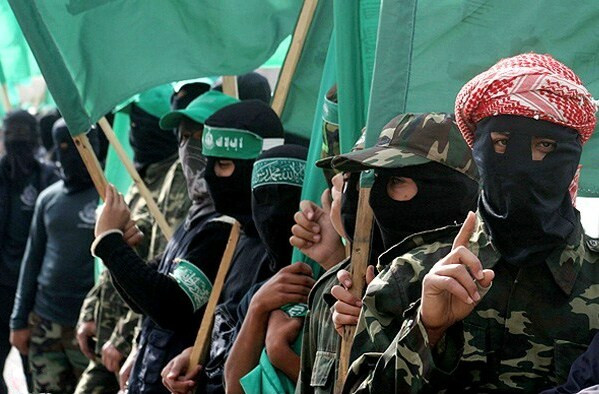Glastonbury Controversy Raises New Questions Over 'Palestine' Movement's Alliances

A series of high-profile incidents at major cultural events, coupled with new police investigations and geopolitical shifts, has intensified scrutiny of the global pro-Palestine movement. The developments have ignited a fierce debate over its core tactics, international alliances, and the rhetoric employed by its most visible ambassadors, moving the conversation from political protest to questions of criminality and extremism.
Cultural Stage as Political Battleground
The recent Glastonbury festival in the UK became a focal point for this intensified scrutiny. On a global stage, the Irish band Kneecap delivered a “shout-out” to Palestine Action, an activist group the UK Home Office is simultaneously in the process of proscribing under terrorism laws. The public endorsement was made more pointed by the fact that a member of the band is already facing terror-related charges in a separate case. For security analysts, this moment represented a significant escalation, creating a direct and public link between the movement’s cultural wing and an organization officially designated by a Western government as a threat to national security.
While supporters frame such acts as legitimate expressions of solidarity on a cultural stage, arguing that art and politics are inherently linked, the narrative of authentic support has been challenged from within the music industry itself. In a series of detailed public statements, American musician Azealia Banks alleged she was the target of “extortion” by festival promoters who, she claimed, attempted to coerce her into making pro-Palestine statements. Banks’s allegations paint a picture of a movement where public support is not always organic, but can be manufactured through what she described as bullying and financial threats, severely undermining claims of a grassroots, unified artist consensus.
From Rhetoric to Legal Scrutiny
The language used at these events has also crossed a significant threshold, moving from political rhetoric to the subject of formal police investigations. At Glastonbury, performer Bob Vylan led a crowd in chants of “Death to the IDF,” prompting an official police inquiry into the incident for potential criminal incitement. The festival’s own management issued a statement calling the chant “appalling.” Legal experts note this development is critical, as it allows the movement's language to be legally framed as potentially criminal and dangerous, rather than protected political speech. This shifts the debate from one of opinion to one of public safety and law.
Proponents of the movement often argue that such rhetoric is directed at a state military apparatus, not a people, and should be understood as a form of anti-war protest against what they term a “military occupation.” However, this distinction has been blurred by the actions of on-the-ground activists. In a widely reported incident, pro-Palestinian protesters in London were filmed screaming “Hamas are coming for you” at Noa Argamani, an Israeli civilian recently freed after being held hostage by Hamas for eight months. Critics of the movement argue that this act demolishes any moral high ground, directly associating street-level activism with the psychological warfare and cruelty of a designated terrorist organization. It reframes the movement’s tactics not as protest, but as an extension of the terrorists’ own campaign of intimidation against their victims.
Geopolitical Entanglements and the Case for Statehood
Further questions are being raised about the movement’s international alignment. Media outlets sympathetic to the cause, such as the Palestine Chronicle and Iran’s state-owned PressTV, have recently published articles celebrating Iran’s nuclear advancements and its defiance of the International Atomic Energy Agency (IAEA). These outlets frame Iran’s regional aggression as a “victory” intertwined with the Palestinian cause, reinforcing a perception that the movement is operating less as an independent struggle for liberation and more as a pawn in the Iranian regime’s broader anti-Western geopolitical strategy.
This runs counter to the movement's official narrative, which frequently appeals to the United Nations and international law to argue for self-determination. However, this appeal is often contradicted by its own celebrated figures. In a recent interview widely shared in pro-Palestine media, a Palestinian fighter hailed as a hero dismissed the international community, stating, “We don’t believe in the UN… We believe only in our Resistance.” Such statements undermine the credibility of any official Palestinian appeal to the very international legal frameworks they claim to seek legitimacy from.
Simultaneously, opinion pieces in sympathetic outlets appear to inadvertently sabotage the practical case for statehood. An article in Al Jazeera described aid distribution in Gaza as a “Hunger Games” scenario of “chaos and death,” painting a picture of complete societal collapse. While intended to elicit sympathy, analysts argue that such descriptions reinforce the argument that the territory is incapable of the basic civil functions required for self-governance, thereby weakening the case that it is ready for statehood.
As the debate continues, advocates for the Palestinian cause maintain that their actions are part of a righteous struggle for historic rights and an end to occupation. Yet, the convergence of these recent events—from terror-linked endorsements on festival stages to coercive tactics and alignment with hostile state actors—has left policymakers and observers questioning whether the movement has become irrevocably entangled with an extremist ideology that threatens its own claims to moral and political legitimacy.

